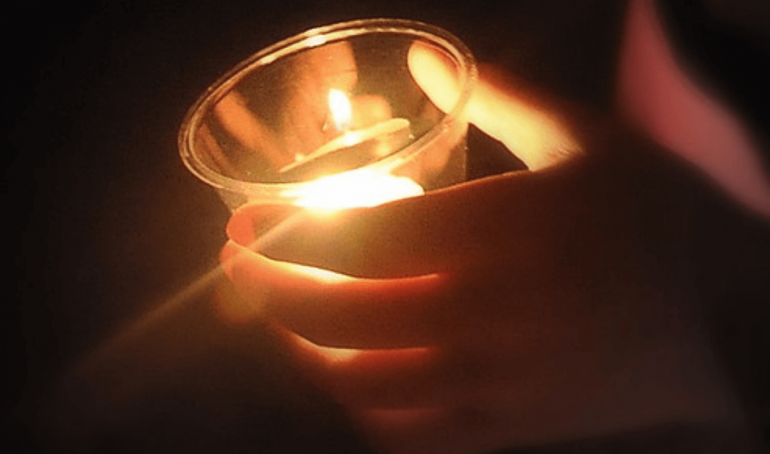Churches stop issuing "Baptism certificate" for Myanmar refugees in India's Mizoram state

A newborn baby is welcomed into the Christian fold through the sacrament of baptism. While the church organization accepts an infant born of Myanmar refugee parents with joy, it will not issue the certificate of Baptism.
Church organizations issue a certificate of Baptism to anyone formally initiated as a follower of Christ. The certificate indicates the details of the person baptized, like the candidate's name, date and place of birth, names of parents and godparents, date, place, and the priest's name.
But Christian parishes in India's northeastern state of Mizoram have decided not to issue baptism certificates to refugee babies from Myanmar because of a lack of clear government policy on the status of refugees fleeing across the border from that conflict-torn nation.
Leaders of Christian churches of various denominations met with civil society and political party representatives in Lunglei, the principal town of Lunglei district, on February 1.
After deliberations, it decided against issuing certificates for babies of Myanmar refugees living in the district.
Mizoram shares an ethnic brotherhood and a border with Myanmar and has welcomed thousands of refugees fleeing the military coup in the neighbouring country.
For all practical purposes, the children and their parents will be treated as Christians. But the churches were advised not to issue baptism certificates because these would be interpreted as a ''legal document.''
“Only government authorities can decide about the citizenship of such children. Baptism certificates could be later used to seek recognition as Indian citizens. There may be legal complications,” Pu Lal Kima, a Mizo social worker, told the press.
There are about 1100 people currently living in refugee camps across the Lunglei district.
According to media reports, thousands of Christians from Myanmar have sought shelter in Mizoram over the past year after the military junta intensified its crackdown on rebels in the Chin state bordering India.
An estimated 20,000 Myanmar people have fled to Mizoram since violence broke out in the Southeast Asian nation after the military coup a year ago on February 1, 2021.
The Young Mizo Association (YMA), the state's largest and most influential civil society organization, supplies rations and other essentials to these camps.
The Catholic Church in India's Mizoram state has joined other Christian denominations and youth associations in assisting Christian refugees.
A representative of the Presbyterian Church of Mizoram Synod regretted the church's inability to issue baptism certificates for the babies of Myanmar refugees born in the state.
"We have all our sympathies, but we cannot give any paper that could attract actions under citizenship rules without prior and proper approval from the government authorities," a church leader said on condition of anonymity.
A Baptist Church leader said the lack of records would not affect Myanmar refugees' faith practices.
“For all practical purposes, the children and their parents will be treated as Christians. But we cannot issue any document,” he said.
The Catholic Church is engaged in humanitarian work along with several other denominations, Caritas India, Catholic Relief Services, the Young Mizo Association and NGOs. The top priorities are to give them shelter, medicines and food, and as the conflict continues across the border, efforts have been made to address the needs of the children, such as access to education.
The refugees from Myanmar living in Mizoram are mostly in Champhai on the Indo-Myanmar border, a strategically important location,” Catholic Bishop Stephen Rotluanga of Aizawl had recently told a Catholic news agency.
“There are several issues that have to be tackled with love and care as the refugees are in shock and are in trauma leaving their country. Many have lost their near and dear ones. Most of them are Christians, but there are also some Muslims,” he said.
Radio Veritas Asia (RVA), a media platform of the Catholic Church, aims to share Christ. RVA started in 1969 as a continental Catholic radio station to serve Asian countries in their respective local language, thus earning the tag “the Voice of Asian Christianity.” Responding to the emerging context, RVA embraced media platforms to connect with the global Asian audience via its 21 language websites and various social media platforms.














